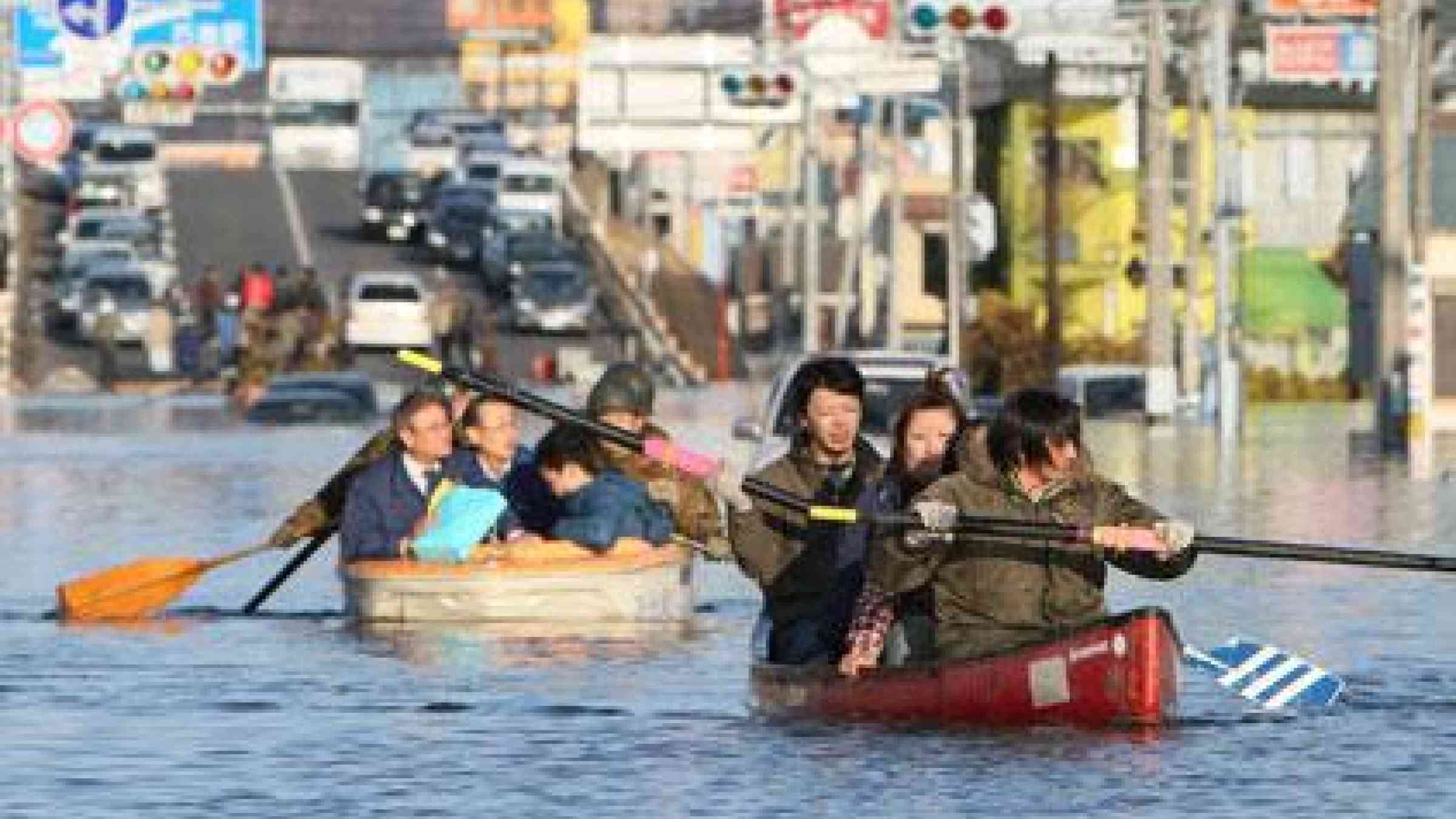Top UN officials speak about the importance of disaster risk reduction following a massive earthquake off Japan's coast

Speaking to UN Radio, two of the UN's top officials on disaster reduction weigh in on the devastation caused by an earthquake measuring 9.0 on the Richter scale that struck northeastern Japan on Friday and triggered a tsunami that engulfed coastal towns and cities along Miyagi, Iwate, and Fukushima prefectures. In the interviews, they highlighted the importance of disaster risk reduction and Japan's disaster preparedness.
Margareta Wahlström, UN Special Representative for Disaster Risk Reduction, spoke to Gerry Adams about the international response and the preparedness measures taken by countries to reduce their disaster risk.
"After the Indian Ocean Tsunami in 2004, a lot of work has been invested in building early warning systems", said Ms. Wahlström when asked about what small island nations were doing to reduce their risk to disasters. She said many small island nations, such as Fiji, were given evacuation warnings hours before the tsunami reached these countries.
Sálvano Briceño, Director with the UN International Strategy for Disaster Reduction, spoke to Rocío Franco about disaster preparedness in Japan and the risk and impact of a tsunami on the country and the rest of the world.
“In Japan, it’s a traditional effort to reduce their risk to disasters. And their education system includes the relevant information for children from very early ages to be aware and to be prepared to respond to these natural hazards.” Compared to earthquakes, tsunamis are a different hazard affecting a wider geographic area and population. They are high risk hazards since most populations are located along the coast, stressed Mr. Briceño.